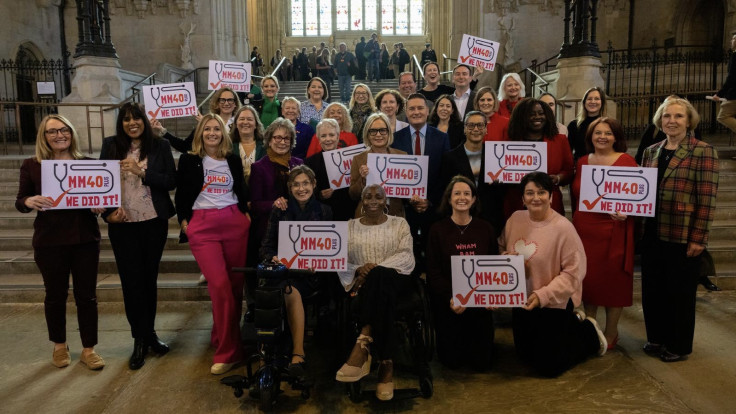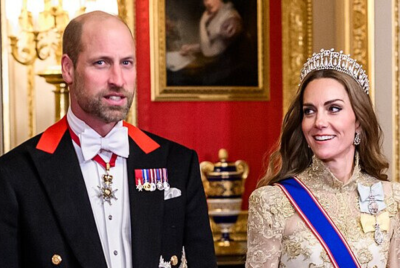NHS to Include Menopause in Health Checks from 2025 – What It Means for Women
Decision follows mounting pressure from MPs, doctors and public figures who demanded recognition of menopause as a major public health issue

In what campaigners are calling a 'historic breakthrough', the NHS in England will, for the first time, include questions about menopause during routine health checks for adults aged 40 to 74. The change, set to benefit up to millions of women, follows years of public pressure and advocacy from high-profile figures who accused the health system of failing women during one of the most consequential stages of their lives.
Health Secretary Wes Streeting voiced that too many women had been dismissed, ignored or told their symptoms were just part of getting older. He added:
'Women have been suffering in silence for far too long. This is the clearest signal yet that their voices are being heard.'
For many, this policy is the culmination of a grassroots movement driven by high-profile advocates such as Davina McCall, whose own words laid bare the confusion and frustration that many women experience. She revealed:
"I was furious at the lack of knowledge that I had as a 43-year-old woman going through perimenopause," and said she felt "terrified, lonely, not knowing what it was."
Her candid testimony became part of the tide of public awareness and demand that the health service recognise menopause as the vital health priority it is.
Reflecting on why she had not recognised the symptoms sooner, she said in an interview:
"I had no idea. And I thought, how, why? Why do I not know about this?"
Her testimony resonated widely, helping women across the UK identify their own symptoms and call for systemic change in how menopause is addressed within the NHS.
Menopause specialist Dr Louise Newson, who founded the balance menopause app and has long argued that menopause should be part of preventive healthcare:
'I didn't realise until I opened my clinic ... how many women really suffer and how many women give up their jobs, have partners that leave them, are in crisis, really worry about their future health and actually have quite intrusive suicidal thoughts as a direct consequence of their hormones.'
The push for reform has been relentless. Labour MP Carolyn Harris, who chaired the UK's All-Party Parliamentary Group on Menopause, was instrumental in shining a political spotlight on the issue. She told MPs last year:
'This menopause revolution will bring an end to women's suffering.'
Advocacy organisation Menopause Mandate, which represents thousands of women, said the NHS decision proves the power of public outcry. A spokesperson commented:
'Including menopause as a key part of the NHS 40+ health check is a major leap forward — for women and for business.'
The NHS Health Check currently screens for heart disease, diabetes and stroke risk — all conditions that menopause can exacerbate. Symptoms such as hot flushes, heart palpitations, joint pain, sleep disturbance and anxiety affect around 75% of women, with 25% reporting severe symptoms.
However, until now, menopause has not been included in any NHS screening programme, leaving many women to battle years of untreated symptoms or misdiagnoses.
Professor Ranee Thakar, President of the Royal College of Obstetricians and Gynaecologists, said: "It is fantastic news that menopause conversations will now be included in routine NHS health checks for women over 40 years old... Creating space for women to get information about menopause symptoms, support and treatments will break down barriers, reduce stigma, and help many women live more happily and healthily in middle age."
👩 Menopause will be included in NHS health checks for the first time to help millions of women get the support they need.
— Department of Health and Social Care (@DHSCgovuk) October 23, 2025
GP @Dr_Ellie explains why this is important ⬇️
We're overhauling women's healthcare as we build an NHS fit for the future.
More: https://t.co/qBatVSf22q pic.twitter.com/0pKWBPVGCx
Beyond the clinical implications, the move is seen as a symbolic shift towards dismantling what campaigners have called 'medical misogyny'. The decision marks a profound change in how the state views midlife women: not as invisible patients, but as individuals whose health is central to societal wellbeing.
As Carolyn Harris MP stated during the parliamentary debate introducing the Menopause (Support and Services) Bill,
"This is not just about women; this is about families, communities, the economy and society as a whole."
© Copyright IBTimes 2025. All rights reserved.


















